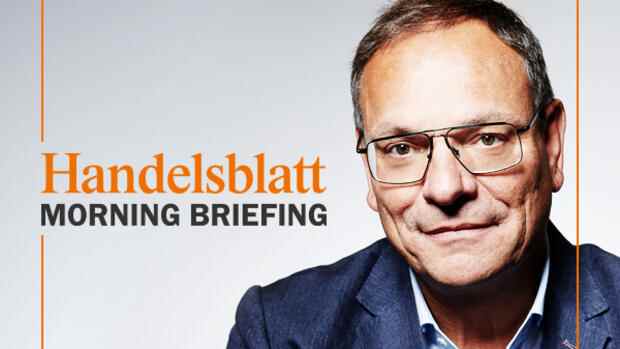“Anyone who knows Easter cannot despair,” teaches Dietrich Bonhoeffer, the theologian who was murdered in 1945 shortly before the end of the war. There are many reasons to despair this year: the brutal Russian war against Ukraine, long since a case for a war crimes trial; the still ongoing pandemic; the cancer of nationalism, whose French figurehead, Marine Le Pen, calls for resistance against Germany; the almost lost sight of the increasingly threatening climate crisis; the disregard and bending of the law in states like Hungary that call themselves “democratic”. All this is part of the political darkness, like Good Friday.
In Germany, for the time being, there is a growing longing for more leadership, for clearer orientation. Chancellor Olaf Scholz sometimes seems paralyzed between a failed Russia policy and the necessary solidarity in values for Ukraine.
Top jobs of the day
Find the best jobs now and
be notified by email.
Clear criticism comes from the own traffic light coalition circles, for example from the FDP politician Marie-Agnes Strack-Zimmermann. The chairwoman of the Defense Committee in the Bundestag explains in the “Welt” on the Ukraine war: “Not only is it not going according to plan. I would say there is no plan.”
(Photo: imago images/photothek)
This is an oath of disclosure. The Greens politician Anton Hofreiter, who heard about a cabinet decision not to deliver heavy weapons, is also clear: “My expectation is that this will be lifted as soon as possible.”
And: “The problem is in the Chancellery and Mr. Scholz speaks of a turning point, but he does not implement it sufficiently.” The last announcement of the criticized Scholz is: not to travel to Kyiv. Our headline: “Chancellor in a bind.”
Molière already knew: “No matter how many qualities we have, the world pays particular attention to our bad ones.”
Shortly before the celebration of SAP’s 50th birthday in Hamburg’s Elbphilharmonie with Lang Lang, a few problem areas of Germany’s largest tech group became clear.
- Sales have barely grown in the past three years.
- The transformation from a software company to a service provider in the cloud is more difficult than expected.
- In the first few months of the anniversary year, SAP lost more than a fifth of its stock market value – a much sharper decline compared to the leading index Dax.
CEO Christian Klein answers critics with a number: plus 17 percent. That’s how strong the cloud business grew (to 9.42 billion euros) last year.
That was a “sensational breakthrough,” explains co-founder and chairman of the supervisory board Hasso Plattner in an interview with the Handelsblatt: “It’s the comeback of German engineering.” That’s the optimistic view. Critics, on the other hand, see SAP on the way from pioneer to operator of a data silo from which other systems draw the relevant information, writes our author Christof Kerkmann.
Be that as it may, the fact that rivals like Salesforce or Workday are more valued by investors certainly has to do with better communication.
The former British Secretary of State for Justice, David Wolfson, gave his boss Boris Johnson a little legal lesson on the “Partygate” affair. He submitted his resignation. You can only implement legal reforms if you stick to the laws yourself, Wolfson wrote in a letter to the prime minister published on Twitter. “It’s not just about the question of what happened in Downing Street or your own behavior,” it’s about the official reaction to the events. Lord David: “As we obviously do not agree on this matter, I must ask you to accept my resignation.”
The fined Boris Johnson will go down in history as the first British leader to break the law while in office. His Secretary of State shows more morality.
My cultural tip for the weekend: “No one prayed at their graves” by Khaled Khalifa, a novel by the writer living in secret in Damascus about his native Syria, spanning generations. A passionate family epic about a country that you only hear about at the moment in connection with dictatorship and Russian brothers-in-arms.
But here, too, a liberal, open life seemed possible in the first half of the 20th century, despite all the tragic love affairs between Muslims and Christians that have been described. In the end, happiness is always just missed, and beautiful Aleppo is just a heap of stones.
(Photo: Ankerkraut)
And then there is the innovative spice mixture start-up Ankerkraut, whose best hopes shot up. Entrepreneurs Stefan and Anne Lemcke sell the majority of their company, which became known through the Vox show “Die Höhle der Löwen” (The Lion’s Den), to the Swiss company Nestlé.
Investor and Vox juror Frank Thelen, who had secured 20 percent, sold at the same time and did one of his best deals. Under Nestlé’s direction, Ankerkraut sales are expected to increase from 40 million to 100 million euros.
But among influencers and fans, some are already talking about a sell-out, even if the founding couple Lemcke are staying on as brand ambassadors.
Wise advice comes from the man who will soon tempt us all to take an Easter walk: Johann Wolfgang von Goethe. “Irony is the grain of salt that makes what is served enjoyable in the first place,” he wrote for posterity.
I wish you a happy Easter with a well-seasoned roast, of course without salty bills.
It greets you cordially
Her
Hans Jürgen Jakobs
